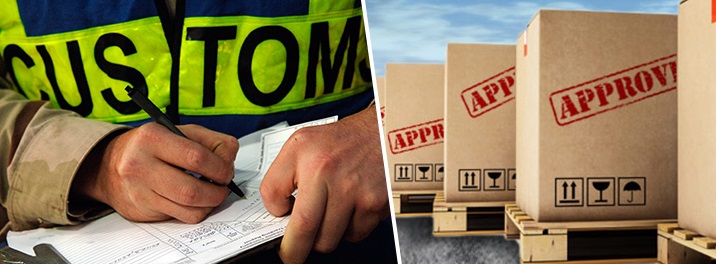Customs Physical Representation
Do you intend on having your customs declarations handled by an agent? AOL International knows what representation entails for importers, exporters or licence holders for a procedure with economic impact. We simply know what customs physical representation is.

What is representation?
The Community Customs Code allows people to be represented at Customs for the fulfillment of the actions and formalities laid down in the Community Customs Code. This is known as ‘representation’. You will find information on the two parties involved in representation and the differences between direct and indirect representation. You will also read about lodging declarations and declarations with particular obligations.
Parties Involved In Representation
Representation involves two different parties: the stakeholder and the customs agent. • The stakeholder is the represented party. He or she has direct control over the goods and takes the initiative in assigning a good customs-approved treatment or use. The stakeholder is the importer, exporter or licence holder for a procedure with economic impact, and is the client of the customs agent. The stakeholder authorities his or her representation by the customs agent. • The customs agent acts for its client. The broker is also the point of contact for Customs.
Direct And Indirect Representation
Representation in the customs declaration processes means that the party which has to lodge a declaration outsources this to a representative: the customs agent. The law distinguishes between two forms of representation: direct and indirect. • In case of direct representation, a customs agent lodges a declaration in the name of and on behalf of the stakeholder.The stakeholder is the declarant and, as such, responsible for the declaration. In the Netherlands, direct representation may be sought for the import, export and re-exportation declaration processes. • In case of indirect representation, a customs agent lodges a declaration in his or her own name but on behalf of a stakeholder. A customs agent who acts as an indirect representative is the declarant and, as such, responsible for the content of the declaration. In the Netherlands, indirect representation may only be sought for the export declaration process. Indirect representation is particularly intended for situations where the stakeholder (the exporter) is established outside the European Community (EC). In that case, he will not be able to act as a declarant himself. In case of indirect representation, a customs agent who is established inside the EC acts as the declarant. In order to be able to act as an indirect representative, a customs agent needs to be authorized as a Customs Broker.
Lodging A Declaration
The main rule in customs legislation is that customs declarations can be lodged by anyone who is able to present goods and submit all the required documents to apply the provisions applicable to the customs procedure for which the goods have been entered to Customs. Moreover, this person needs to be established inside the EC. There is one important exception to this rule; customs declarations whose acceptance involves particular obligations for a certain person need to be lodged by the person themselves or at their own expense. These declarations are referred to as “declarations with particular obligations”. If a stakeholder has these declarations lodged at his or her own expense, one can speak of representation.
Declarations With Particular Obligations
The following customs declarations are declarations with particular obligations: • the declaration for release into free circulation • with a special customs-approved treatment or use • with an exemption from customs duties • following outward processing • the declaration towards placement under the customs warehousing procedure • the declaration towards placement under the inward processing procedure (suspension and repayment) • the declaration towards placement under the processing under customs control procedure • the declaration towards placement under the temporary import procedure • the export declaration • the re-exportation declaration • the declaration towards placement under the outward processing procedure
There is only one customs declaration which does not involve any particular obligations. This concerns the ‘regular’ declaration for release into free circulation, i.e. a declaration for release into free circulation which does not involve the application of other customs procedures.
